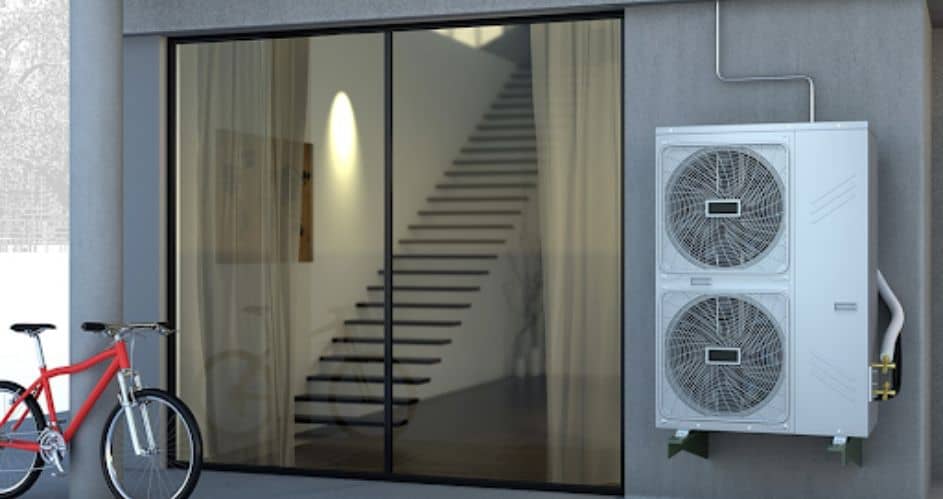
Heat pumps are a very effective and low-carbon method for both heating and cooling. With a heat pump, you can replace your current system that runs on fossil fuel and start using this system to heat and cool your home and keep the air in your home cleaner.
Heat pumps are a financially sensible improvement for your home because of their longevity. For instance, the service life of heat pumps is between 15 and 20 years, which makes them an excellent investment.
Heat pumps are a part of the heating and cooling system and are installed outside of your home. They can cool your home, much like a conventional AC unit, but they can also generate heat.
Heat pumps are used to transmit heat from the chilly outside air to the interior during the colder months and to cool the interior during the warmer months.
They run on electricity and convey heat using refrigerants to ensure year-round comfort. And because they provide both heating and cooling, you will not need to install a separate heating system.
If you want to start using a heat pump to heat your home, continue reading to find four things you should expect.
What to Expect from a Heat Pump’s Heating Performance
They are low maintenance
Heat pump systems require regular and minimal maintenance. With a little care, you can keep your heat pump system functioning well.
There are a couple of things you should pay attention to, such as filter replacement, removing any debris, cleaning outdoor coils on a regular basis, and arranging annual checks for your heat pump.
You should replace the filters regularly, for example, once a month if you use your system frequently.
Then, remove branches, leaves, and other debris that accumulate around your outside unit, because they can have a substantial impact on your heat pump’s capacity to function.
Heat pumps require regular cleaning, so remove anything that lands around or on top of the unit.
Remember that heat pumps are long-lasting, but they should be inspected by a qualified professional once a year. They will be able to identify possible problems before they become severe and also give you ideas on how to recognize problems yourself.
For example, if you live in Winnipeg, Manitoba, make sure you research the market and find the top Winnipeg heat pump experts this area has to offer.
Always make sure you work with a certified company that has highly-trained professionals with excellent expertise to perform the job.

They can reduce your climate impact
Heat pumps, unlike traditional furnaces and boilers, are powered by electricity. In other words, they have a lower environmental impact and emit fewer harmful pollutants than natural gas systems.
Heat pumps are far more energy efficient than conventional electric heating systems, such as baseboard heaters or electric furnaces.
And, when compared to a standard air conditioner, most heat pumps, particularly mini-splits, have substantially higher SEER ratings, which means they consume less energy when cooling.
Lower electricity bills
Heat pumps need electricity to function; however, most of the energy used to heat your home comes from the outside. The cost of energy required with a properly fitted heat pump setup will be significantly cheaper than the similar heating costs with a conventional boiler.
If you’re also lowering heat loss and improving your home’s energy efficiency, for example, by installing insulation and draught-proofing, you’ll likely save money on energy bills after installing the heat pump because you’ll be wasting considerably less energy.

Better efficiency
One of the primary reasons for heat pumps popularity is that they are more energy efficient than fossil fuel systems or electric baseboard heaters.
The coefficient of performance (COP) is the ratio that specifies how many units of heating or cooling the pump can deliver for each unit of energy required to run it.
For example, a heat pump with a COP of 5 can generate five units of heat for every watt of power consumed. The heat pump should deliver three units of heat for every unit of energy used.
That’s three times the COP of an electric baseboard heater and more than three times the efficiency of even the most efficient natural gas furnaces.
Final thoughts
Using a heat pump system requires excellent maintenance. So organize annual maintenance, including filter inspection and replacement.
This way, you will improve the work of the system, reduce the electricity bills, clear the air in your home, and help the environment. Maintaining your family’s health by keeping your heat pump system clean should be your top concern.
